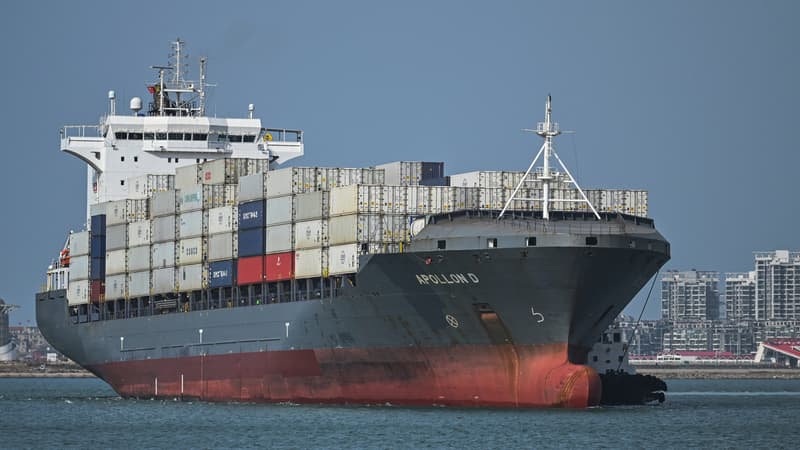Do big ships pollute too much? The issue was precisely on the agenda this week of the 80th Commission for the Protection of the Marine Environment of the International Maritime Organization (IMO), a body that depends on the UN. On this occasion, the member countries signed an agreement aimed at reducing greenhouse gas emissions from maritime transport. An agreement considered disappointing by environmental NGOs.
The text of the commitment, consulted by AFP, also establishes “indicative” objectives (therefore, not binding) to reduce polluting emissions by at least 70% by 2040, with a goal of at least 80%, compared to 2008.
Several NGOs consider the text to be disappointing compared to the objectives that many countries set themselves before the meeting, and insufficient to put the sector on the trajectory of reducing CO2 emissions under the 2015 Paris agreement.
Disagreements on objectives
In 2018, the IMO gave carriers a target to reduce their CO2 emissions by 50% by 2050 compared to 2008, which was considered insufficient. The European Union was calling during negotiations this week at the IMO headquarters in London for a more ambitious goal of net zero emissions by 2050 with two intermediate steps: a 29% reduction in 2030 and an 83% reduction in 2040.
The Pacific Island States, particularly threatened by global warming, wanted to go further, supported by the US, UK and Canada: -96% by 2040. Environmental NGOs for their part called for -50% by 2030 and carbon neutral for 2040 .
By contrast, many major exporters, including China, Brazil and Argentina, among others, have held back, saying overly strict targets would benefit rich countries at the expense of developing countries. They were particularly opposed to a proposed carbon tax, backed by French President Emmanuel Macron and by companies including shipping giant Maersk.
A possible tax now only appears in the draft agreement on a series of proposed measures to reduce emissions from freight.
An agreement too unambitious for NGOs
The vast majority of the 100,000 ships in the sector, which transport 90% of the goods in the world, are powered by heavy fuel oil. The sector is responsible for almost 3% of global CO2 emissions, according to the UN.
Marshall Islands representative to the Marine Environment Protection Commission, Albon Ishoda, said the new greenhouse gas reduction strategy “keeps global warming limited to a possible 1.5 degrees and commits the sector to an energy transition.” fair”.
Environmental NGOs are more critical. “The level of ambition of the agreement is far below what is necessary to keep global warming below 1.5 degrees, and the wording of the text is vague and non-binding,” laments the NGO Clean Shipping Coalition.
“Representatives of civil society are deeply concerned that the IMO has failed to bring global shipping into compliance with the limit of 1.5 degrees of global temperature rise,” adds the NGO Ocean Campaigns.
Source: BFM TV


